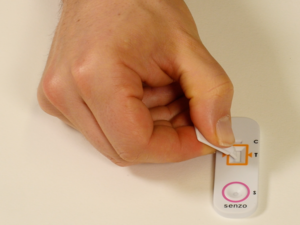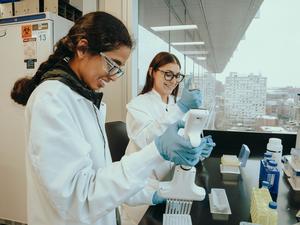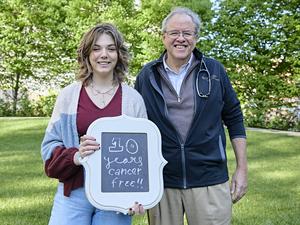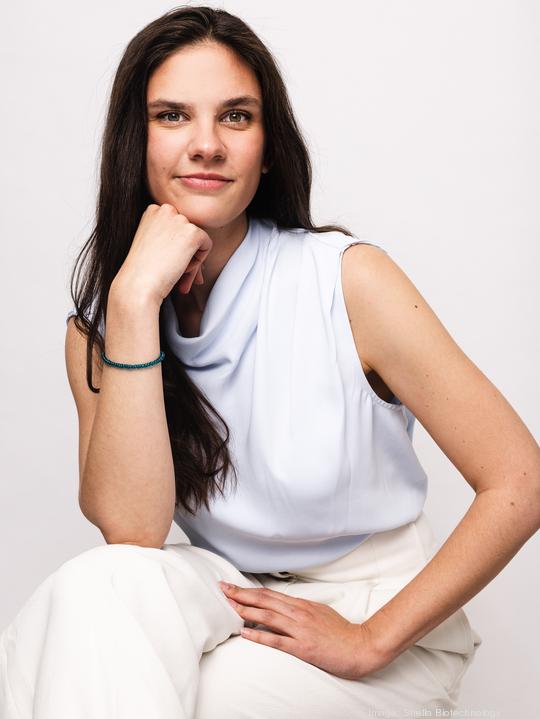
This week's Philadelphia-area life sciences industry news includes a multimillion-dollar stock sale, progress on experimental hepatitis B and Covid-19 therapies, and more.
Here's the roundup:
Strella Biotechnology
The Philadelphia life sciences company that developed proprietary produce sensor technology designed to reduce food waste and improve quality has raised $8 million in a Series A funding round.
The equity financing was led by Millennium New Horizons and also included participation from Google Ventures and Rich Products Ventures. Billionaire entrepreneur and "Shark Tank" celebrity Mark Cuban, an early investor in Strella, also took part in the round as did previous investors Yamaha Motor Ventures, Catapult Ventures and Union Labs.
The 4-year-old company plans to use the funds to support its national grocery chain expansion plans and for new product development.
Strella’s novel IoT biosensors and real-time data streaming were created to measure the ripeness of fruit produce so freshness can be monitored from harvest to the grocery store shelf. To date, the company has monitored more than 2.1 billion pieces of fruit.
"Unlike manufactured foods, there is no accurate expiration date for produce, which makes optimizing inventory a challenge for the industry across the entire supply chain," said Katherine Sizoy, Strella's CEO and co-founder.
Ray Cheng, a partner at Millennium, said Strella is "uniquely positioned" to solve food waste challenges at scale. “More and more retailers are making waste reduction their top priority, with over a dozen of the world’s largest grocers looking to halve food waste by 2030,” Cheng said.
Strella, which has 15 employees, last year moved from Pennovation Works to a larger space at Pennovation Lab in West Philadelphia. It recently established an office in Seattle to better support the apple-growing industry. The company's four-person research and development team continues to be based in Philadelphia.
Arbutus Biopharma
The Warminster biopharmaceutical company and its collaboration partner Vaccitech (NASDAQ: VACC) dosed the first patient in a Phase 2 study for a potential hepatitis B treatment.
The clinical trial will evaluate Arbutus’ RNA interference (RNAi) therapeutic candidate, AB-729, in combination with Vaccitech’s T-cell stimulating immunotherapeutic, VTP-300, as standard therapy for the treatment of patients with virologically suppressed chronic hepatitis B infection. The goal is to enroll 40 patients in the study.
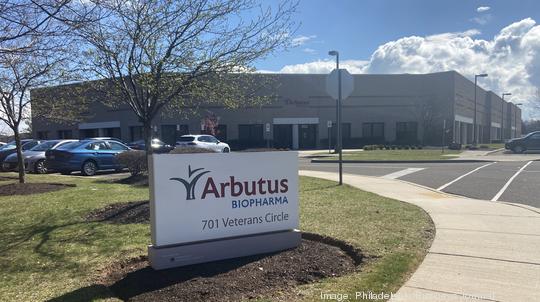
“To-date, we believe AB-729 is the only RNAi to show evidence of HBV-specific immune re-awakening," said Dr. Gaston Picchio, chief development officer of Arbutus (NASDAQ: ABUS).
RNAi therapeutics are drugs that trigger a biological process that prevents the expression of genes linked to certain diseases.
Clinical data generated by Arbutus for AB-726, which in being studied in multiple clinical trials, has shown single- and multi-doses of the drug candidate have provided meaningful reductions in hepatitis B surface antigen and hepatitis B DNA.
Hepatitis B is a potentially life-threatening liver infection. Chronic hepatitis B infection, which afflicts an estimated 2.4 million people in the United States, can cause chronic infection which leads to a higher risk of death from cirrhosis and liver cancer.
Marinus Pharmaceuticals
The Radnor pharmaceutical company announced it has amended the protocol for its Phase 3 clinical trial testing its new drug candidate for refractory status epilepticus, a condition characterized by persistent seizures.
Dr. Scott Braunstein, CEO of Marinus, said based on extensive consultation with the trial investigators and the company's scientific advisory board, the company is implementing protocol changes that allow clinical sites to enroll a broader population of patients. "We believe the updated protocol also brings improved convenience and clarity and meets the evolving needs of a hospital-based clinical trial," he said.
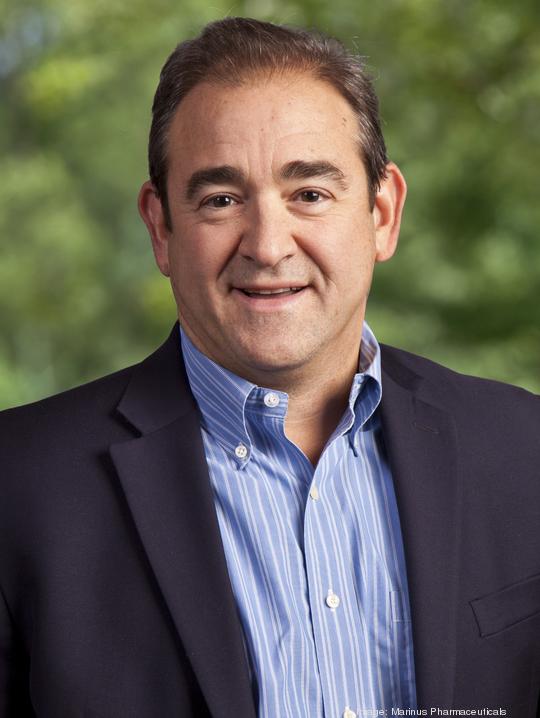
Marinus (NASDAQ: MRNS) has broadened inclusion criteria in the trial to allow for enrollment of patients previously treated with IV anesthesia, as well as patients transferred from other hospitals or treated in the emergency room. The company expects that most sites will adopt these protocol updates by the middle of the third quarter of 2022.
Additionally, Marinus said it "reached alignment "with the FDA on the protocol amendment, including a proposal for a potential interim analysis.
To further support recruitment and enrollment, Marinus expects to initiate site activations in Canada during the third quarter of 2022 and is evaluating further expansion into Israel and Australia. Marinus has set a target of 65 to 75 study sites globally. The company expects have data from the testing in the second half of 2023.
Quick hits
Exton-based Immunome (NASDAQ: IMNM) enrolled the first patient in a Phase 1 clinical trial of IMM-BCP-01, a three-antibody cocktail under development to treat Covid-19. Data from the study is expected in the second half of this year. … Passage Bio (NASDAQ: PASG), a Philadelphia genetic medicines company, has received clearance from the FDA to begin human testing of its experimental gene therapy targeting metachromatic leukodystrophy. Metachromatic leukodystrophy is a rare and fatal pediatric lysosomal storage disease that currently has limited available treatment options. The condition occurs in an estimated one in 100,000 live births. … Annovis Bio (NYSE: ANVS) of Berwyn submitted an international patent application under the Patent Cooperation Treaty for its drug platform buntanetap. The patent claims a method of inhibiting, preventing, or treating neurological injuries due to viral, bacterial, fungal, protozoan, or parasitic infections in humans. Annovis already holds patents covering a wide range of neurodegenerative diseases, including Alzheimer's and Parkinson's diseases, frontotemporal dementia, chronic traumatic encephalopathy, and acute injuries such as stroke and traumatic brain injury.
